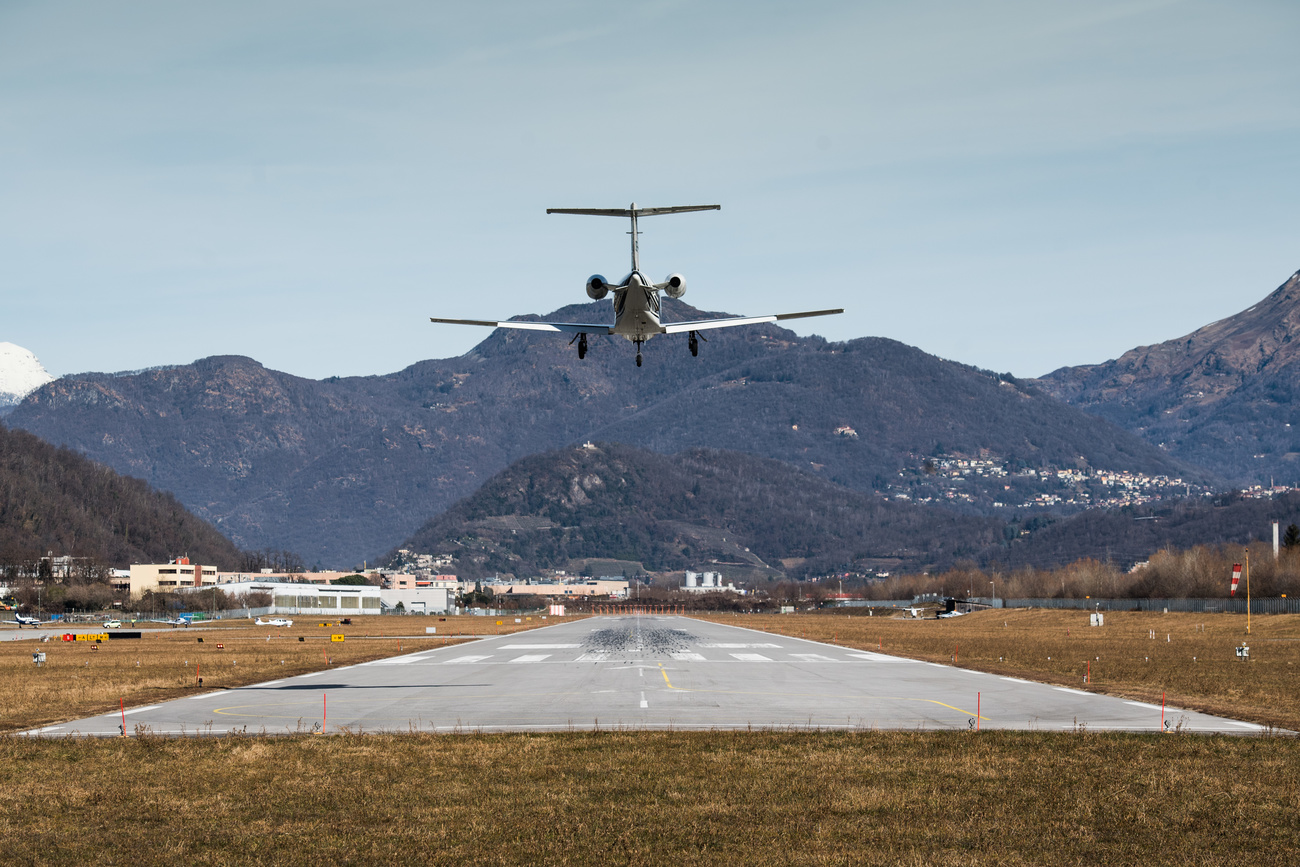
Swiss airline start-up vows to take-off despite pandemic

While most airlines are wondering how they will survive coronavirus, one Swiss start-up believes the pandemic could help it finally get into the air. Swiss Skies has rebranded itself as Moov Airways and is determined to create a new long-haul, budget carrier operating out of Basel airport.
The Swiss Skies project launched to much fanfare in 2018. But a year later it looked to have permanently stalled after failing to persuade investors to inject CHF100 million ($113 million) of starting capital. Two founding members abandoned the venture to take on jobs elsewhere.
The timing of the budding airline’s relaunch is curious, to say the least. The pandemic has devastated the airline industry, putting many carriers in peril of demise and forcing others to go cap in hand to governments for bail-out cash.
The International Air Transport Association (IATA) has forecast losses of $118 billion for the industry this year. Swiss International Air Lines reckons on 1,000 job losses over the next two years, despite a CHF1.5 billion government loan.
But Moov founder and CEO Alvaro Oliveira sees a silver lining to the gloom afflicting the industry. “This creates an opportunity for new entrants,” he told swissinfo.ch. “Established airlines are reducing fleets, making it cheaper to lease aircraft. More slots will be available at airports than in the past. And there are lots of experienced people losing their jobs, looking for new opportunities.”
“The ability of the competition to react to our arrival will be impaired,” he added. “The legacy businesses are facing overwhelming levels of debt looking ahead.”
Broad network planned
The ambitious strategic targets of Swiss Skies, to run dozens of aircraft and to employ thousands of staff, have been taken over by Moov. But Oliveira, who was born and raised in Brazil and used to fly commercial aircraft, recognises that the effects of the pandemic, particularly on business traffic, may force the company to alter its plans to some extent.
The model of using second-tier airports around Europe, such as Basel, broadly follows that of short-haul budget airlines. Moov plans to fly direct, non-stop to the eastern seaboard of the United States (including New York), Canada, South America, the Caribbean, the Middle East and possibly India.
The company is targeting the Airbus 321 LXR (extra-long range) as its aircraft of choice, which should start rolling off the production lines in 2023.
Moov has recently added a new ambition – to take over the running of Lugano airport in Switzerland, near to the Italian border. It is competing with six other consortiums to manage an airport that has struggled to compete with nearly Milan and Zurich for passengers. A short-list of candidates is expected to be decided in mid-January.
Finding the money
The elephant in the room is finding the CHF100 million to get Moov off the ground. Deep-pocketed investors proved hard to find during the booming growth years of air transport. “We cannot expect a high level of risk appetite from traditional investors for a new airline,” admits Oliveira.
So Moov has turned to a new form of capital-raising that leverages distributed ledger technology (DLT), which is similar to blockchain. This fledgling technique of creating and trading digital versions of company shares promises to reduce costs and increase access to a wider range of investors.
Moov had considered this fund-raising exercise two years ago, having witnessed other start-ups accumulate huge sums – even hundreds of millions of dollars. But the company decided to postpone its so-called “security token offering” (STO) until regulators introduced greater legal certainty.
It remains to be seen whether the general public will have a greater appetite for investing in a new airline than private equity players – although Moov has not given up entirely on attracting institutional investors.

In compliance with the JTI standards
More: SWI swissinfo.ch certified by the Journalism Trust Initiative





























You can find an overview of ongoing debates with our journalists here . Please join us!
If you want to start a conversation about a topic raised in this article or want to report factual errors, email us at english@swissinfo.ch.